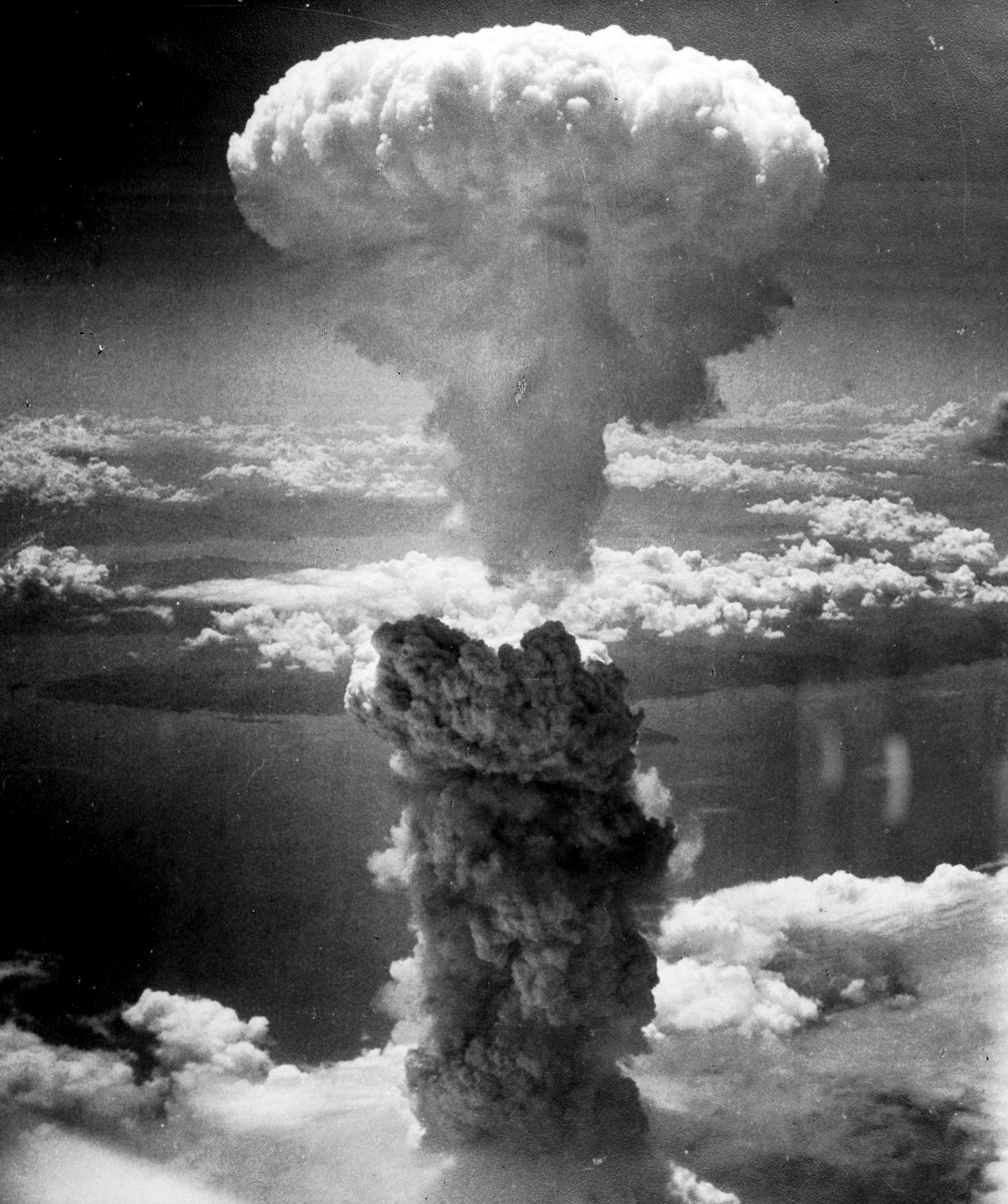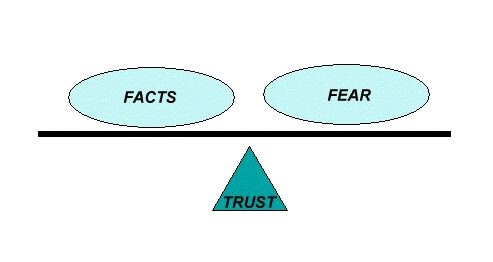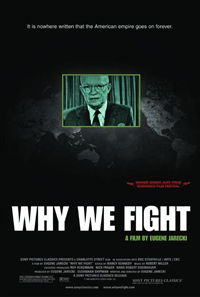retrieved from wikipedia (link):
The term military-industrial complex usually refers to the combination of the U.S. armed forces, arms industry and associated political and commercial interests, which grew rapidly in scale and influence in the wake of World War II, although it can also be used to describe any such relationship of industry and military. It is sometimes used to refer to the iron triangle that is argued to exist among weapons makers/military contractors (industry), The Pentagon (military), and the United States Congress (government).
1. Origin
The term was first used publicly by President of the United States (and former General of the Army) Dwight D. Eisenhower in his Farewell Address to the Nation on January 17, 1961:
- A vital element in keeping the peace is our military establishment. Our arms must be mighty, ready for instant action, so that no potential aggressor may be tempted to risk his own destruction...
- This conjunction of an immense military establishment and a large arms industry is new in the American experience. The total influence — economic, political, even spiritual — is felt in every city, every statehouse, every office of the federal government. We recognize the imperative need for this development. Yet we must not fail to comprehend its grave implications. Our toil, resources and livelihood are all involved; so is the very structure of our society.
- In the councils of government, we must guard against the acquisition of unwarranted influence, whether sought or unsought, by the military-industrial complex. The potential for the disastrous rise of misplaced power exists and will persist.
- We must never let the weight of this combination endanger our liberties or democratic processes. We should take nothing for granted. Only an alert and knowledgeable citizenry can compel the proper meshing of the huge industrial and military machinery of defense with our peaceful methods and goals so that security and liberty may prosper together.
In the penultimate draft of the address, Eisenhower initially used the term military-industrial-congressional complex, indicating the essential role that U.S. Congress plays in propagating the military industry. But, it is said, that the president chose to strike the word congressional in order to avoid offending members of the legislative branch of the federal government. The author of the term was Eisenhower's speech-writer Malcolm Moos.
Vietnam War-era activists referred frequently to the concept. In the late 1990s James Kurth asserted that "[b]y the mid-1980s . . . the term had largely fallen out of public discussion," and opined that "[w]hatever the power of arguments about the influence of the military-industrial complex on weapons procurement during the Cold War, they are much less relevant to the current era."
Contemporary students and critics of American militarism continue to refer to and employ the term, however. For example, historian Chalmers Johnson uses words from the second, third, and fourth paragraphs quoted above from Eisenhower's address as an epigraph to Chapter Two ("The Roots of American Militarism") of a recent volume on this subject (The Sorrows of Empire: Militarism, Secrecy, and the End of the Republic [New York: Metropolitan Books, 2004], p. 39).
The expressions permanent war economy and war corporatism are related concepts that have also been used in association with this term.
Although the term was originally coined to describe U.S. circumstances, it has been applied, by extension, to the corresponding situations in other countries. It was not unusual to see it used to describe the arms production industries and political structures of the Soviet Union, and it has also been used for other countries with an arms-producing economy, such as Wilhelminian Germany, Britain, France and post-Soviet Russia. The expression is also sometimes applied to the European Union.
- War is a Racket (book by Smedley Butler)
- Why We Fight (documentary by Eugene Jarecki)
- Corporatism
- Militarism
- Security-industrial complex
3. Sources
- Eisenhower, Dwight D. Public Papers of the Presidents, 1035-40. 1960.
- ________. "Farewell Address." In The Annals of America. Vol. 18. 1961-1968: The Burdens of World Power, 1-5. Chicago: Encyclopaedia Britannica, 1968.
- ________. President Eisenhower's Farewell Address, Wikisource.
- Hartung, William D. "Eisenhower's Warning: The Military-Industrial Complex Forty Years Later." World Policy Journal 18, no. 1 (Spring 2001).
- Kurth, James. "Military-Industrial Complex." In The Oxford Companion to American Military History, ed. John Whiteclay Chambers II, 440-42. Oxford & New York: Oxford University Press, 1999.
- Nelson, Lars-Erik. "Military-Industrial Man." In New York Review of Books 47, no. 20 (Dec. 21, 2000): 6.
4. References
Cult television show The X-Files displayed a nameless conspiracy of the American government, dominated by the Military-industrial complex's sinister machinations. This conspiracy including everything from tobacco lobbyists to extraterrestrials. Not surprisingly, some conspiracy theorists felt the show was created to disenfranchise their distrust and hide the real conspiracy. In the third season episode of the series "Jose Chung's 'From Outer Space'" series lead David Duchovny satirizes this by accusing a writer's search for the truth regarding a bizarre alien abuduction as an effort made for "the military-industrial-entertainment complex."
5. External links
- Schema-root.org: military industry 38 military industry topics, each with a current news feed
- Open Secrets: Top Defense Contributors to Federal Candidates and Parties database
- War Resisters: Piechart and info on defense spending
- Military-industrial complex on SourceWatch
- National priorities project chart showing how your federal income tax is spent
- Quotes on Money and Banking and Militarism
- Flows of Money and Patronage from Washington Truth in Recruiting
- Why We Fight : A Film by Eugene Jarecki exploring the effects of the Military Industrial Complex
SPECIAL LINKS TO RELATED POSTS INSIDE THIS BLOG:
OTHER LINKS:
- 1-Standing Armies And Armed Citizens: An Historical Analysis of The Second Amendment
- 2- Obedience to orders
- 3- Democracy and Defense: Civilian Control of the Military in the United States
- 4- Nuclear Madness and Missile Envy: The New Nuclear Danger - link 1; link 2














































